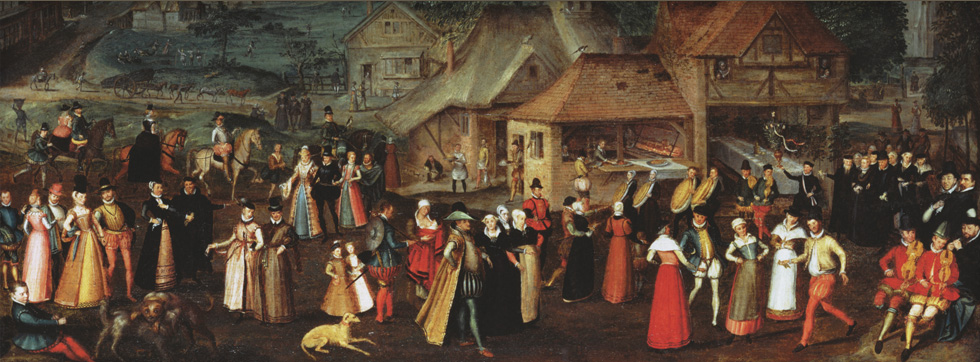By Isabel Sebode, MSt English Literature (1550-1700)
It’s 7am. Your alarm rings and you promptly force yourself to get out of bed to prepare for work. On your commute, you are confronted with continuous advertising: on the tube, on the street, or even as you check your phone whilst waiting for the bus. Conscious of it or not, materialism surrounds you. You work to consume, not simply the items that you need, but those that you want.
This is our life in the 21st century. Yet let us look back roughly four hundred years to the 1660s. The English Civil War has officially ended through the restoration of the monarchy. Puritans no longer control the government, Charles II sits on the throne, and the voices of radical religious groups such as the Levellers and the Diggers are being subdued. Trade is bringing change into the market of the English consumer, and work methods are shifting away from the artisanal workmanship of medieval England towards a more quantity-oriented production enabled by division of labour and the preaching of continuous hard work. Early modern England was undoubtedly undergoing the early stages of capitalism, creating a system that makes the early modern individual’s experience of day-to-day labour closer to
that of the thought-experiment above than we may assume.
We can read history books to understand what changes occurred in early modern England (roughly 1500-1700). However, I approach the question of why, and I use literature to identify 17th century attitudes towards labour. Why did the early modern individual work hard, and how do these reasons vary between different demographics? As I examine these questions, I focus on the poem Paradise Lost (1667) by John Milton, an epic rendering of Genesis that portrays everything from Satan’s rebellion in Heaven to the Fall of mankind through Eve’s consumption of the apple. One moment in this monumental narrative strikes me the most: Eve’s insistence to transform her and Adam’s work methods in the garden of Eden. She encourages Adam to ‘divide our labours’ (IX.214), as their current laissez-faire mentality subjects them to the fast growth of nature. Their daily work is undone, convincing Eve that she has not deserved the food generously provided by God. Most literary and theological interpretations of Genesis clearly portray the necessity of hard work as God’s punishment on mankind for their ambition and ‘ungratefulness’. Thus, in the Bible, this change occurs as result of the Fall, whereas in Paradise Lost optimised labour practices are introduced in the moments leading up to the Fall. Milton’s attribution of desire for hard labour to Eve is exceptional, rendering its economic and political significance worth investigating.
Why interrogate this poetic choice? Understanding Milton’s attitude towards labour – himself a bourgeois elitist whilst simultaneously Republican radical and Protestant – is only possible through understanding the reasons why the early modern individual felt the need to labour in the first place. Explanations to this question are less obvious than we may think. Different religious attitudes encouraged different attitudes towards work, with especially Protestantism being frequently linked to a more proto-capitalist work ethic, as preachers taught their devotees to work hard but remain ascetic in their spending, an attitude which ultimately leads to the accumulation of wealth. This theory is expounded by Max Weber in his The Protestant Ethic and the ‘Spirit’ of Capitalism (1905), a work of great influence that I believe contains serious limitations, which my study challenges.
My research approaches the 1660s from a more holistic perspective, assessing how differences in class, gender, race and religion determine an individual’s motivations to work. It emerges throughout my study that labour does not simply fuel the economy, but frequently has a highly personal, even spiritual, significance. Approaching early modern attitudes towards the central capitalist issue of work and productivity helps us to further understand Milton’s Paradise Lost, a poem whose enduring impact demands continual revisiting, whilst furthermore illuminating what changes in the 17th century led to our current socio-economic climate. How does our experience as late capitalist readers help us understand early modern readers of particularly, but not exclusively, John Milton?
